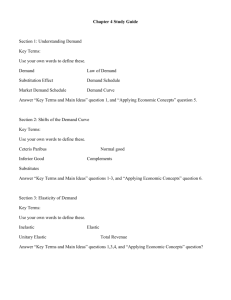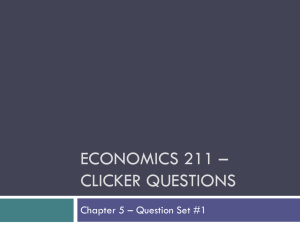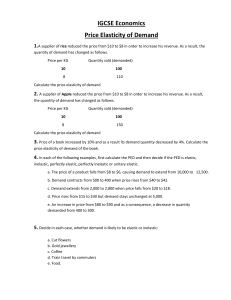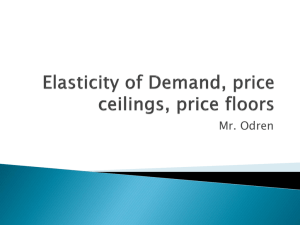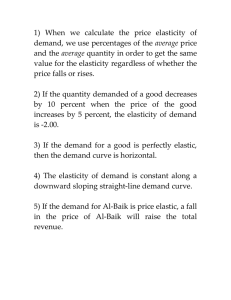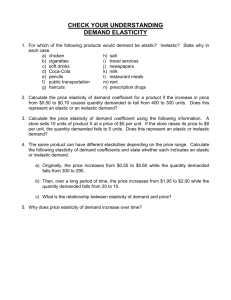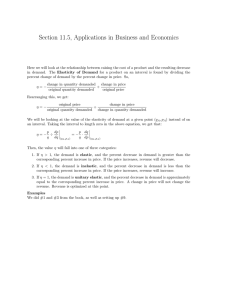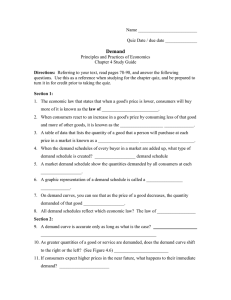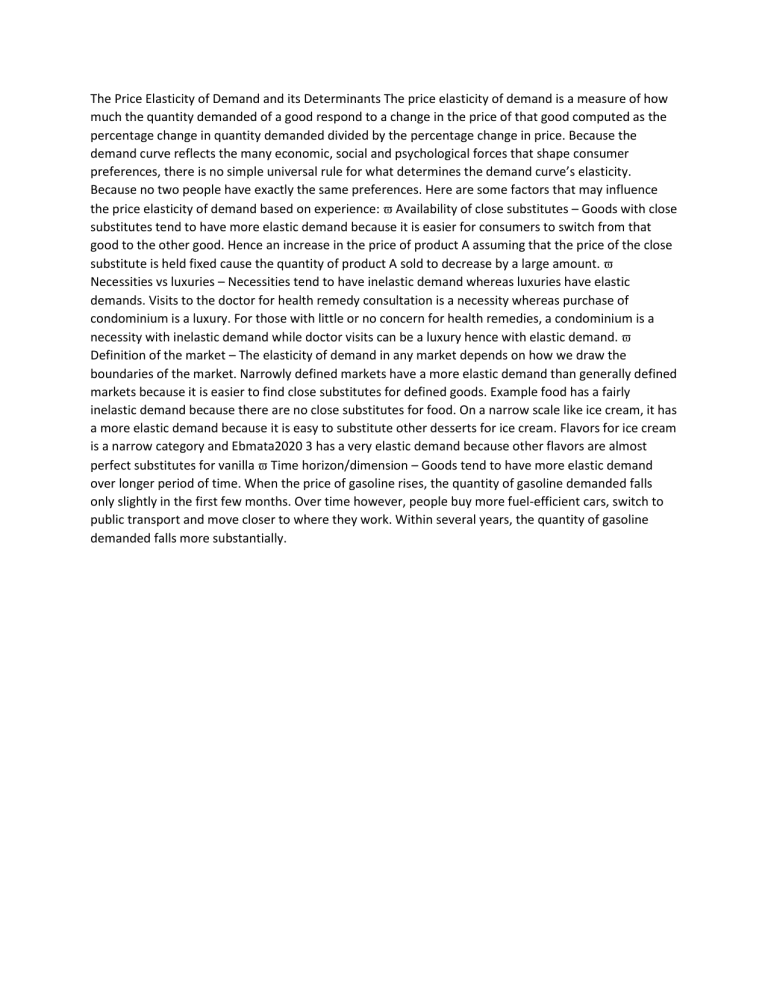
The Price Elasticity of Demand and its Determinants The price elasticity of demand is a measure of how much the quantity demanded of a good respond to a change in the price of that good computed as the percentage change in quantity demanded divided by the percentage change in price. Because the demand curve reflects the many economic, social and psychological forces that shape consumer preferences, there is no simple universal rule for what determines the demand curve’s elasticity. Because no two people have exactly the same preferences. Here are some factors that may influence the price elasticity of demand based on experience: Availability of close substitutes – Goods with close substitutes tend to have more elastic demand because it is easier for consumers to switch from that good to the other good. Hence an increase in the price of product A assuming that the price of the close substitute is held fixed cause the quantity of product A sold to decrease by a large amount. Necessities vs luxuries – Necessities tend to have inelastic demand whereas luxuries have elastic demands. Visits to the doctor for health remedy consultation is a necessity whereas purchase of condominium is a luxury. For those with little or no concern for health remedies, a condominium is a necessity with inelastic demand while doctor visits can be a luxury hence with elastic demand. Definition of the market – The elasticity of demand in any market depends on how we draw the boundaries of the market. Narrowly defined markets have a more elastic demand than generally defined markets because it is easier to find close substitutes for defined goods. Example food has a fairly inelastic demand because there are no close substitutes for food. On a narrow scale like ice cream, it has a more elastic demand because it is easy to substitute other desserts for ice cream. Flavors for ice cream is a narrow category and Ebmata2020 3 has a very elastic demand because other flavors are almost perfect substitutes for vanilla Time horizon/dimension – Goods tend to have more elastic demand over longer period of time. When the price of gasoline rises, the quantity of gasoline demanded falls only slightly in the first few months. Over time however, people buy more fuel-efficient cars, switch to public transport and move closer to where they work. Within several years, the quantity of gasoline demanded falls more substantially.
